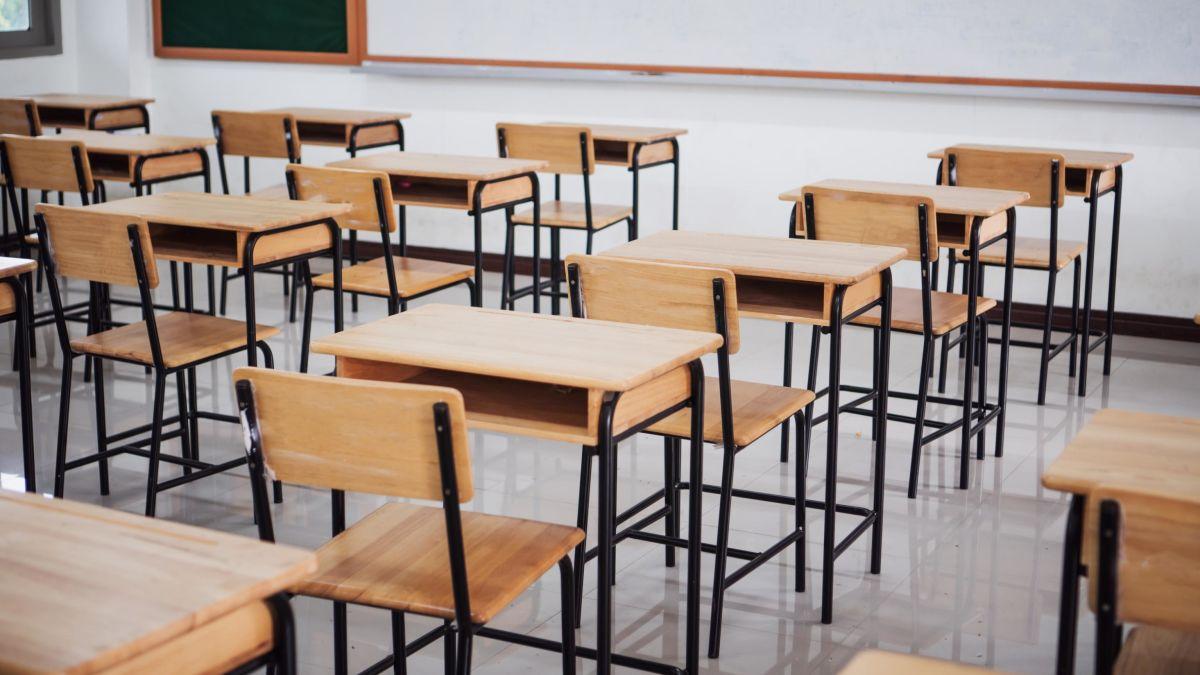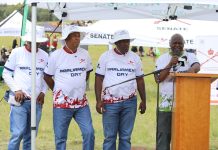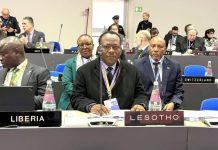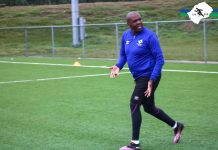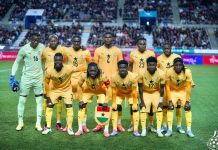Africa-Press – Lesotho. Education experts encourage SADC member’s states to prioritise education, expand their budget allocation towards the sector to ensure quality and inclusive education for all students in the region. This was the recommendation from the 3rd sitting of the SADC Youth Forum, virtually held and hosted by Malawi this week.
The SADC Youth Forum is an annual event hosted before the Heads of State and Governments summit to deliberate on critical issues affecting young people in the SADC region and offer solutions in line with development strategies formulated by SADC and the African Union.
This year’s theme is: “Blue and Green Economy for sustainable Development. ” Presenting on the status of education in the SADC region before and after the Covid-19 pandemic, Keamogetse Rose Sekgwama from Botswana lamented the disruption brought about by the pandemic to the region’s education system.
She was presenting on the status of education in the SADC region before and after the Covid-19 pandemic and the strategies that governments can employ to bridge the gap and ensure inclusive and quality education for all.
She said the existing state of affairs at the time offered inclusive education to all students, even to those that are from disadvantaged backgrounds and those that live in rural areas.
Sekgwama pointed out, however, that the emergence and spread of the pandemic has taken all that from the students, establishing a gap in education between students living in rural areas and those residing in urban areas; and between the rich and the poor.
Sekgwama said due to Covid-19 governments were forced to apply or facilitate for remote learning as a result of which students without financial means to either buy data or digital gadgets to enable remote learning were marginalised by the whole arrangement.
She also noted that those that reside in rural areas without internet connections suffered the most, noting that digital learning favoured students from cities where there are libraries and internet connections.
She, however, noted that with the Fourth Industrial Revolution in the picture, digitising learning was a step in the right direction but governments need to invest more in education to ensure that the digital learning is accessible to all.
Her remarks were echoed by Bridget Akurut from Global Partnership for Education (GPE), in Uganda, who added that inclusive and transformational education which will yield key learning outcomes for children that will ensure that they thrive after their studies is a need in the region.
She said governments need to empower the education system and ensure sustainable remote learning, adding that the under-capacity of GPE, amid the Covid-19 pandemic and where remote learning was a must, ensures that all students access education through television, radio and distribution of study materials to hard-to-reach areas.
She emphasised that education needs urgent attention and commitment, further applauding Malawi for taking a lead and allocating 27 percent of its budget towards education.
Akurut continued that Covid-19 has taught governments that people lack skills to survive amid the crisis hence the need to advocate for inclusive and quality education.
On behalf of the World Bank, Ronald Jongwe noted that SADC member states were failing to ensure inclusive quality education for all. He said the challenge is adapting to the new way of learning. Jongwe added that despite this failure there are opportunities that the region can take advantage of.
He said according to some research he and his team undertook, they found out that there is a rush in internet use, radio and television and the region has forgotten easier ways students can learn without the need for government assistance.
The use of WhatsApp, he indicated, is simple yet effective and only needs a teacher to facilitate. He again pointed out that governments should adjust their budgets towards the education sector to respond to impacts of Covid-19 on the education sector and not act like there is no crisis.
“Covid-19 should not only be treated as a health crisis, but as an educational crisis as well.
It is only then that change will be experienced,” he said. Another opportunity, he said, was partnership by governments with mobile network providers.
Such a partnership, Jongwe said, can also facilitate for learning resources aligned with school curricula and ensure that mobile network providers open educational platforms at reasonable and affordable prices as one of their corporate social responsibility initiative.
Also recommended is subsidizing of data prices, opening of a fund that would cater for gadgets students need for digital learning. Jongwe further recommended that teachers be capacitated on e- learning and use of online platforms so that they can be able to guide students.
“Teachers need to be equipped with teaching resources and digital skills. There is also need to adapt to available materials either by digitising them or compressing the contents into modules,” he noted.
Speaking on behalf of students, Alister Pfunye from the Southern African Students’ Union (SASU) pointed out that as a result of Covid-19, classes were disrupted, school residents were closed, while international travel and academic exchange programmes were banned.
He said all these not only imposed educational inequality among students but also emotional and mental suffering. Jongwe noted that a lot of students whose parents lost jobs were unable to pay their fees, with students subjected to learning under unfavorable conditions without electricity and having to share a room with siblings.
“It is in this regard that we recommend that governments subsidises data, focus on digitising education materials and implementing strategies to help shift to remote learning.
“We also recommend that governments each open a fund or scholarships that will ensure that all students have gadgets needed for digital learning. Governments should also develop rural areas and ensure internet connectivity,” he said.
In November last year, Lesotho’s ministry of social development announced that more than 4 000 Form C and Form E students failed to show up at school when classes resumed in November 2020 after they were closed due to the first lockdown meant to control the spread of Covid-19 since the beginning of the same year.
Failure to afford examination and school fees were presented as the main drivers, given the economic disruption caused by the coronavirus lockdown. The Ministry of Social Development’s Liteboho Mosala-Letsie told Public Eye that her ministry found out that 2 727 (15.15 percent) and 1 661 students (11.86 percent) who were supposed to sit for JC and LGSCE examinations respectively had dropped out.
“That is a total of 4 388 students. Some owed examination fees, others owed school fees while yet others owed both examination and school fees. The ministry is going to pay for them and the Minister has since appealed to them to go back to school,” Mosala-Letsie said.
On the same issue the Minister of Social Development, ’Matebatso Doti, last November even announced in parliament that her ministry will throw a lifeline to all the Form C and E students who dropped out by paying their fees.
Doti said this was a critical support for the students to get their lives back on the rails and called on the parents to send their children back to school.

